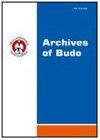The profile of Sense of Positive Health and Survival Abilities indices (subjective assessment) as a diagnostic tool used in health-related training
IF 1.5
3区 医学
Q3 SPORT SCIENCES
引用次数: 45
Abstract
Background The main objective of the article is a methodic of the profile of the sense of positive health and survival abilities indices in relation “patient (client) personal trainer (leader)”. The objective of empiric sphere was the profile based on subjective assessment of young women possessing different level of everyday physical activity. The question is whether there is a significant difference in the profile of sense of positive health indices in all its dimensions and own survival abilities between young women who declare engagement in everyday physical activity and their peers, who are occasionally active? Material/Methods: The profile based on the subjective sense of various positive health indices covers three dimensions: somatic A, mental B, social C and D dimension, which represents sense of indices and assessment reflecting individual’s survival abilities. The sense of intensity of particular indices is evaluated in the 1 to 5 scale (where its value is as follows: 1 very low, 2 low, 3 average, 4 high, 5 very high). The “0” index is used for the purpose of evaluation of specific abilities (D dimension). The arithmetic mean of indices (after decomposition to diagnostic values) calculated for particular dimensions (from A to D) constitutes a general measure of a given health dimension and survival abilities. The arithmetic mean calculated for A to D indices represents the most general index of Sense of Positive Health and Survival Abilities (SPHSA). The study group consisted of 23-year old female students of the 2-cycle university program in physiotherapy, (22 declared engagement in everyday physical activity whereas 100 were occasionally active). Results: Women who reported engagement in everyday physical activity possess higher values of SPHSA than their peers, who are occasionally active (respectively 3.641 and 3.479; p<0.05). The highest value was recorded for social health sense (4.12 and 4.14), whereas the lowest value was noted for the survival abilities (2.956 and 2.828). Students who are active on daily basis possess statistically higher values than women who occasionally engage in physical activity as far as the following indices are concerned: muscular strength (p<0.01) and aerobic capacity, reduced aggressiveness, swimming ability, precision skills in various status of organism (p<0.05). Conclusions: From the methodological point of view the assumption that the profile indices do not directly reflect the sense of health but rather the imaginative value of a specific virtue, ability etc. proved positive. Diversification of assessment is higher in the case of indices, for which the reliability of an individual’s assessment is considered to be relatively high (especially in the A, B and D dimensions).在健康相关培训中作为诊断工具的积极健康感和生存能力指数(主观评估)概况
本文的主要目的是对“患者(客户)私人教练(领导)”相关的积极健康意识和生存能力指标进行方位法分析。经验领域的目的是对具有不同水平的日常体力活动的年轻女性进行主观评价。问题是,在声称每天参加体育活动的年轻妇女和偶尔参加体育活动的同龄人之间,在所有方面的积极健康指数概况和自身生存能力方面是否存在显著差异?材料/方法:基于各种积极健康指数主观感觉的剖面包括躯体A、心理B、社会C和D三个维度,代表反映个体生存能力的指标感和评价。特定指数的强度感以1到5的等级进行评估(其值如下:1非常低,2低,3平均,4高,5非常高)。“0”指标用于评估特定能力(D维度)。为特定方面(从A到D)计算的指数(分解为诊断值后)的算术平均值构成对特定健康方面和生存能力的一般衡量。A至D指标计算的算术平均值代表了积极健康感和生存能力(SPHSA)的最一般指标。研究小组由23岁的女学生组成,她们参加了2周期的大学物理治疗课程,其中22人声称参加日常体育活动,100人偶尔活动。结果:有日常体力活动的女性SPHSA值高于偶尔运动的女性(分别为3.641和3.479;p < 0.05)。社会健康意识得分最高,分别为4.12和4.14,生存能力得分最低,分别为2.956和2.828。每天运动的学生肌肉力量(p<0.01)、有氧能力、攻击性降低、游泳能力、机体各种状态下的精密技能(p<0.05)均显著高于偶尔运动的女性。结论:从方法学的角度来看,侧面指标不直接反映健康感,而是反映特定美德、能力等的想象价值的假设是正确的。在指标方面,评估的多样化程度较高,个人评估的可靠性被认为相对较高(特别是在A、B和D维度)。
本文章由计算机程序翻译,如有差异,请以英文原文为准。
求助全文
约1分钟内获得全文
求助全文
来源期刊

Archives of Budo
SPORT SCIENCES-
CiteScore
2.80
自引率
47.60%
发文量
0
审稿时长
>12 weeks
期刊介绍:
Archives of Budo is an international peer reviewed journal publishing articles on various aspects of the sports sciences covering education and research in martial arts and combat sports, and related areas like biomechanics, kinesiology, medicine, psychology, sociology, technologies of sports equipment, research in training, selection, performance, survival, and other interdisciplinary perspectives.
Archives of Budo editors endorse the principles embodied in the Helsinki Declaration and expect that all research involving humans has been performed in accordance with these principles. All human studies must have been approved by the investigator''s Institutional Review Board. A copy of the relevant documentation should be included with the manuscript. Furthermore Archives of Budo follows the ICMJE''s Recommendations for the Conduct, Reporting, Editing and Publication of Scholarly Work in Medical Journals.
Archives of Budo provides free, immediate and permanent online access to the full text of all articles distributed under the terms of the Creative Commons Attribution Non-commercial License http://creativecommons.org/licenses/by-nc/4.0), which permits use, distribution, and reproduction in any medium, provided the original work is properly cited, the use is non-commercial and is otherwise in compliance with the license.
 求助内容:
求助内容: 应助结果提醒方式:
应助结果提醒方式:


